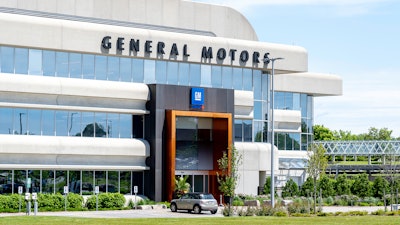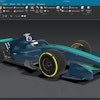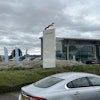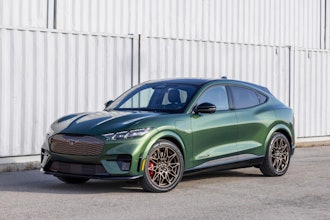
General Motors and Autocar Industries have signed a joint development agreement to create a range of zero tailpipe emissions vocational vehicles powered by GM’s HYDROTEC power cubes.
Hydrogen fuel cells are a key component of GM’s electrification strategy which extends beyond battery-powered passenger vehicles. Fuel cells combine hydrogen and oxygen to generate electricity through an electrochemical reaction. The fuel cell enables the conversion of energy stored in hydrogen into electricity to power a vehicle.
Since fuel cells are lightweight and enable large payloads, excellent range, quiet operation and rapid refueling, they can meet the needs of the heaviest duty applications. With regulations rapidly changing in many countries, fuel cell-powered vehicles have the added advantage of zero tailpipe emissions when compared to diesel vehicles.
These jointly developed trucks will be powered by GM’s HYDROTEC power cubes, which are GM’s fuel cell propulsion system solution for these very demanding commercial vehicles. HYDROTEC power cubes are compact, easy to package, scalable and can electrify vehicles and applications across a variety of industries, from freight trucking, aerospace and locomotives to power generation.
The first of these vehicles is expected to go into production in 2026 at the Autocar Truck Plant in Birmingham, Alabama. Vehicles with HYDROTEC technology will be built to order by Autocar and will be sold directly to customers. Cement mixers, roll-off and dump trucks, which all share a common architecture, will be built first, followed by refuse trucks and terminal tractors.
Each power cube contains more than 300 hydrogen fuel cells, along with thermal and power management systems and proprietary controls to fuel cell and battery life and performance while optimizing cold start capability. The HYDROTEC power cube provides 77 kilowatts of power and is much quieter than a conventional diesel propulsion system. Multiple power cubes can be arrayed in a vehicle for even higher power ratings.
Triz Engineering will provide expert integration support for power distribution between the fuel cell and batteries, which store electricity that is captured from regenerative braking or is created by the HYDROTEC power cubes. Triz Engineering is a commercial vehicle engineering company owned by GVW Group, which also owns Autocar.
GM’s HYDROTEC fuel cell power cubes will be produced by GM in Brownstown, Michigan.






















